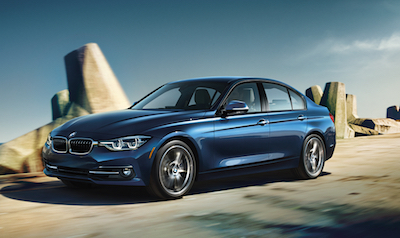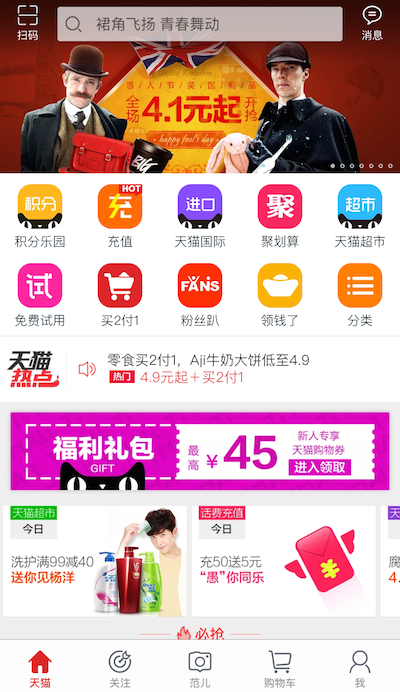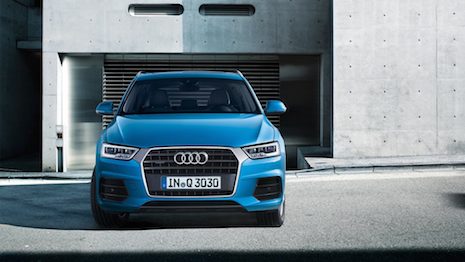While ultra-luxury auto brands such as Ferrari have a better handle on exclusivity and high-end image, standard high-end automakers are more accessible and have a better grasp on digital performance in China, according to L2.
L2’s research in its "China: Luxury Auto" report shows that more than 50 percent of luxury auto brands are available on China’s top retail Web site Tmall. Their presence on the ecommerce site beats out luxury fashion and jewelry brands.
“Accessible luxury brands such as Audi were found to be more advanced than ultra-luxury brands like Ferrari in terms of site functionality and ecommerce in China,” said Liz Flora, editor of Asia Pacific Research at L2. “Accessible luxury brands are more likely to have features such as site configurators, online booking and pricing information on their Chinese sites.”
Chinese insights
By 2020, the luxury car industry in China is likely to become the world’s largest. The country is leading the way in the breakaway from reliance on dealerships.
Online research is the biggest driver for Chinese auto customers’ purchasing decisions, with 50 percent of buyers already knowing what vehicle model they are interested in before entering the dealership. While digital capability is important in all markets for automakers, it is most important in China.
U.S.- and Japanese-made vehicles are starting to lose grip on the advantage they have had over German manufacturers. BMW and Mercedes-Benz are gaining in digital sophistication over Audi and others.

Image courtesy of BMW
Ultra-luxury brands are also losing out a bit to the more accessible luxury brands, with only 80 percent of ultra-high-end automakers having online appointment scheduling while 100 percent of standard luxury brands do.
While so many brands are building a presence on China’s Tmall site, only Tesla has built its own Web site for China of which consumers can purchase vehicles.

Tmall app
China and the auto industry
China’s Finance Ministry implemented a 10 percent import tax on the highest priced automobiles entering the country.
The tax, which went into effect on Dec. 1, affects vehicles retailing for at least 1.3 million yuan, or $190,000 at current exchange. Over the past few years, the government’s communist party has been working to curb conspicuous spending, in an attempt to fight corruption in politics (see more).
Also, the United Kingdom’s European Union referendum vote caused the pound to decline in value and, as a result, affluent Chinese are finding the country an attractive travel destination, according to a report by Hurun.
In its “UK Luxury Brands in China” report, a focused summary based off the “Best of the Best Awards 2017” survey and the “Chinese Luxury Consumer 2017” study, Hurun explored the impact British brands are having on China’s luxury consumer. British brands and culture, in many ways, represent the old guard of luxury due to dedication to heritage, quality and craftsmanship, concepts that align with Chinese sentiment (see more).
“More than 50 percent of luxury auto brands now have official Tmall shops—that’s a higher rate than luxury fashion or watch and jewelry brands,” Ms. Flora said. “Luxury automakers rely on Tmall rather than their own Web sites for online sales in China—Tesla is the only auto brand benchmarked that sells cars on its own Chinese site.”
{"ct":"XmdFaPYHckA9+PdXqSGny\/deBicrvwWIDKCE+N++3IohAqTtNu\/CYLUCGOpC\/2MCAjuRsYLmjUdCuaYlHVwpBT2QryhOOoz\/Ocfm02RERM2JSeCeU2ikaofPYiAoFux9GwA\/d7ypUgcwceP06XJewpTL2nOKfcBjnmNLyyPvlMHU4DxKfWGLWqBNcVPgsBW24RnvpTk5BwXdMpGDHtjHZuhNrrE4ytbpOf40C0PsowdZD1ZGner\/F\/6klRLibCktyFoaLZlyvBhgWdN\/HjqmonRyBLgXekqYhdz7V19BMj+pDIBP+Fq3P4Mkn5tLNCxxSc\/zI\/SGTlAtx6U8X+FqZSpr7Wo2jw9+CN5kucb5p9trXhxLQfgQVAeVrvw+gqIAspWhdqDLkc+GTXoVtjMBe2E4ygFRvV7mTFc+bj5R7b1+HWOA5unMOXQD0U4WSQsEvw0FhQWNTuqHstuP2koRx\/\/QLgw7q9tAMWPsVoI7WkXzlGMikMIvtIx0lTn8Py6nMhXsVakFFR4uqfgMnbI29uXsNe1wg+a0v9SwGuxiVNuV4n9BdBFMnJobRS4AlKuxh2lEkpV8aehtjWEzIb7bF9NrOgTKS0PKI8cGgoRhLiwFQgMY13noRdI+XuA4HKjqnkI7DrtbVftY1zKN8sjmi\/XYxGJ2qyAoFGoSP8wpH2Pebm8ANXwS9YPV\/IcWeXyPGNY859qDTTZmKILC88miMW8BpskL\/L9GW+RwS1MYJSW9yhVca6d+7ckGwgaZO3HcwrH7sowEHkXq\/VYqu7rQLqrNI+XY6+1H+qAc\/pWBji+wZd+1voZ+rEExSo8f5ub3Q3yXERRYfmy0WZH5PrlooJPj7p52ukWFEZquXtYvCjdnmo56fASTTk99WDR6x3zNYrqzjuZxJWU\/r9jm26VKwlfToWdaC3H1+MPZZbWyR8NR1Ul8wtEDXHGTi\/nNCHu4phR2vqTxCiHt2eg2vQEHOQ7We05QFTUHE8aE7gwv\/47tB9Q04MdCnkXd2Qe71p5Y+oY8YB0\/JeKR7YL2ZwyqwQkZfOHKH\/9MmYlTi6qllzCArAptlT9X8Nu95k8yPAIlviqtA83cHGewKnNgndNdFVVRudtkk3F7i9PWVsn\/5Bl3kNHHr82ZsVQ6Dxxgu6N7Roud0VoHgL6SWocfnzJnsrnsA6jq91hNuNkozUy6bWREkkUQN0vSpxYOqiSfEYp3rlo2nfJbqfUz6puUDgAtyDhMA8RXsV2DbIZ5UDG+sLVDRhhuegjdq1TrbOrbeqNRb5zKyaNHpoD5X5Crhhc\/rtUEaYiodcM7uRpgiriu33NR9YKu2kwngeYKLd2rxjmKtFdbYKtEY2mI+Uw4lL6hAwOsDH7iy4Z76MgZeP1NEl7ETevOetdfdDaCrIod9roF9SSlO11Fr0IBo8CuT+wioriWvW5glbXK+tJIobwk45VVCpqJqLkPpaHJLihlpz2UuvoV3seAvRwj4UPX\/2vyNC+URsJKj+RrAvy51o27mrCeMEiZ\/aj8uTIBcZZK2HRL9DxAU573kFcOGKpOtI36rrk3wTC8stWTWGBXnOkhQNXXhQOmUQErKwLYB4zytm5ANYGQ5a1AivfbYovYFie\/gNhDuIW578vRuNuf5wIYdeiMrrtmzJmm8HLjTBiiw\/jxrTy5A8dFTs7RAhsIKf11Kq43ZWWrfrIPupTMg83u56jyrnegZ\/vKFx1xulg8TEZo+kkGr0qR9YdVYqr5uwdw+SClMqLoOHbYLjzxBvpXbBaW\/qRDhoG94ciRocB9ci2aOp9Fp+wyTvOV6YQC10gPqGjdOW6n1+mEz+VfEqvp87jgXSc+oSr1MS74VTPwpuees6ExX0eYbMp17k2Iiic\/BXQmvYOOJNgDDrl8LnsyXhHNafMRvqw1f12V2Um23Vt+\/h1iER8dcaiWOa0MYCcPsbIIXoAIXG3acudGc9Xur1nc+6QGSLR95PX06OuZLP7Z+\/PvFtXIoEf5wT9BUi7whG4YMUgnlkJIEWmY1JYv11SCiTrYkMkTM0dpI301jV461V9P8f3nbjuXrV97OHrMLUzjjAZuLX6ScHdeJucXnXe\/xAYZ80tAAbfMan0JjJzoCnBbiGAkwyVs6IJ50fl46J9IHYKNSdNu9kIybTLpeJwYoyvcoqvy1ic\/d3XCDbjLnvuIW4Eb324TFyTQlbf4maV8NGf1lH2dDQoG25pWoxxRtLQcT9\/Uj281pLUh1tx8VSFpPO\/PIuwabsdhYaLeohNSxb\/9dtNj\/Sii9sCbtXAx4ThmGcgcaFn3xsGg6ss54Wf9Rv1z+0cCPdeqVPzrlWOajYTmXLiEEx3hnIDlLdR4XEqPmdcQRYIrWQ1uh\/KtcIVqf9k9HGEyaN\/AL8pfk1qrhBv5w3KIYZLzU7ZmsaXrlc7oluMAqGFpsc7KyUZfNpxU7r5UkudV4skaVe0i84PC6Wuzo7869RPgsyvWKEPuR\/9keGH2TeLwgHxEt8VpSiw83JoCs25x1LuiWIWIUCFtCra2ZFmw+7rtNzFdqbBaIQ9RSweIDYdcxQp8nKDf5d38Xd8VQhKXCSHOw4fShunla2kXOswNdRsA1sCQL0SPMqL9GK3qcQ7AHjuO4DHN2RnKtv4yzJWOPvOcJJy3\/+PRrJBw+3Lxv4D53tB8UEiaC4Xm2rud36z1\/AYM51spbvdrBTOtwPIrr5PDfPZJtTm6PtnngKC8pmhhyWsjlj9GVNa0JIxTsu03ocBVRd13SNuzXnnYaxWIxV0jIauUv3CDnBpDNfzBZDLaAV4GF4fR6zXbhnGn6Lzkm1O3oGMmcD1jUtwUx8wf4Fhs5HHVyHtegIRt0XypFWMTvGDNbWOQmi7RBT1dfb3I37C3+zPprGExmkwg6QKfWwG1PGLByBr77WiWmZ4wurra350WoL07pHnXIKfSfZML0Oq3EvVqF4BM+Ax4g5Qr0WVjP8wZQYCogq9kQMiiOloRGTt2Hpnse2LPKLxHxKKCsYUz1faQgNYdo1LNL3U52P9yyOCdXxtYQth22ztLk9U16wVsCSdk94p4VSjIsI5DiYcBQ5FyJOFzT5aVupvMYo5VivRJ\/JaXkUlyDYAYamB3s9tmCxaIFsvOBbOtDKJMpPT5j0yxdM35MV2TwTqGpP05bz4ZYLJXnIVU1\/yjOZkSbrzGvaWWmBlo9PqpBkWjGiy61xx\/TwpIZn408ENHUp\/DlNOWku9X0BZP99D+0T9gwLdd3aMiKSo90HLcpqncJC3BWKj0iSZM4Tn1KoK1kU4hH\/oFi\/ooHWZl+qlTG+geVd8vzyUesLZxQ6DphAxtXxN2DjEAAV52eAFR1WCU70OqkH5j5A8+E5MDtcygeffWkJsqDK+98V+hFEWr1tkM+tHHSqF1Ifosz6jTYB\/0WuyU4vzlakkpFbhRiRrwSpm4af2F3fjgDBd\/v7D2Yxa0Oigg24v4LbvyuTPB8LJyVMhNQNwIwp2qNj65J9MbyV77LhGxqN4Rj\/2cV9lWhYSfgR8JdsiUCJjv\/BWVE3cIYUGGIEGBb4WtO25xEO10WLd0W2L+GXQW3BxN1JedpKVPgtwukCE4Q9nrEZpbHypSNLJUaRtp13h8wrk7UKiQEU2ZUOvtxikF7USnrGZEIpcn9foaNQx6B7+EzNtnt9ibG4RS9Tz2Yz4xU8OaAn8ckjLHGQ9Ytc1pSjqVcfBk8S\/48sInAJYTQDcBQ72NZo1ONfisKLbmTb9HMQffzWm+AYTUcSJHF+wXywrH0GD1Y7U\/GqZ6bCizGsJ6tVZemvEK2PtarRdlYQGjwkQcPsieyPeA3g6+4Q50abnt9YOem0Z7Y3gQhCS0q2Ei0bhIDwBADhkpDsR1xc5j7E2LPzB1nmMZl+linNCFWz6zkKElOlexL6hY1lcFw7Och\/EYoV8MDNF2S+1qUvkdZgpWfftetCBe01o1yVDd5WRU+a3p72zcNAScZQVNCDXAkfccCh2wJxyL\/o37DWJTaBpuQdcTfv1LSdHuUmsBRF7zAlwjXRrdBzJHijG7ZeF0E4VNO7Dkvc3FMO6kkjMiZykFyB0NcxT8T783QQwdutmZxjW3qNAEskt1JppkQMh49U9bSxXmaRINIyLAqc3kVhnI6lOcaEbxaDARlMusWyyJsIuhGLAkjlByQNQ5CE3sUDU4VRYj0sYR31igTaRodBK1ayGViiYecn2fUA4Kclg1NfIZe1vCuqZvMfEJ6aPMPIImiBxlmHYZ\/GHlIIC4totJEfxWbg4q1y1gR4f8+p4QPSEo3YuO9Omp7o8fWwpCyidN16CgEDqDQ1NYOlwrUqnghjeGY8te2DwxESnkPmE6i6X3fupruYp3FCG5WjdnOeaTr2ZWSa314or4QrYaiijEoSPhXgyfc\/0zD8jhW9UMJXByFHPHAavZGt8AwsqUONI+Er9ubB2jcT7GhDpDdFMG8E5eSTmXSU0E2cbThInifqkWzm8Hhx3XcJVXXsBw3udCuuKXvBoNn0o+0KiNXbqGU+qgV9dN5Z9oumiWzgKe37nUrljGuF3SvrytKT4OUYnJ9YuE+3ivu1fp8utGYh3M5JA2zPDSxsQaxucWeBP84PbsZ32+aRx5uioTMfz5t2TU0xpsj7apy7L8T2tQQANNiDNMzlcvuzaqS8egOZoTp0dc\/G29j2Dbn2SjCRWGymgoR91t4P8EHuDzaAObFiSSCIczmpEZ7X56uPFnujCZE7tVzwnBkQKl2SJioRm7b1Ub3QAHIOEgr1hlq5fGfTOWG9+BO6oqznGWzNqfR0THl4Tt56usdChppbQU1CMjLYD7JbtkRCYzav\/2VKoFf4tYMatlTbXoVFUPYjpG9saEaoP4Yc60J6T9kmd06v2aEIEQI0awim8lj7zAiHumyp59h4iwGAhgFH0aACgp50CutAlvTjzy8q6Rh\/9Rw2iuSpVLKqUK6dbnJm8n9BKgMYvAtep6\/4eH30vXZ9zF69Mp8QvGbzWAr5WygQYo0JsxNvSb+DXhEvV1B\/RAriHDkm5CHnv29TE9Twh3DhrDKqav5gfBHFjPmVd7iNobqflS4fYGhha7tfSEGURZLMyW3palUYyI60o+I8Jex80Emfp+h6iLY18XCtmhgsEFuQs8DxZsw9CL0PEYTIoAuaQBQKwKBQoxvf82L8UNlAoaWfRDBttlX5Q4V\/tD+UO5PtrkooTS+YI6Glmap2Onc7YXb\/oe3f71B9ljYBoLJE5j1QVe6hkouETUYXqtC\/YW7T7zss9C+zZDwOsDTjQhMfFgKhctxYACX3awZ8RfNXhZKYqugGUY1o2CpoIXLwcNPaYobb3ILH1A04bazOgyBmncLMDreZf4g7trxVHS7fY+Jl+um21s9OUXCvJwksVj8\/Xao2YABApc2rEH+7xlJjb1pGAfkZIcb8zJiPfwth0ejs7lrZQ\/LN3CN5DXLYt5buIrQOQXAy0tN1WGhFjZanjcSVSLNg3t\/vszBaZl1pQk9JUDQu7D17hO8DwYaPWDQ6WxEPGX1pttoVIh58aqVxVBkbKoSKKWSvI2k8dX7gjkX2jG7Vr9rx+qgi\/ybS9cBDLOLp8DfTIyj011PZXqAB83pxpz\/AWqQsbdqOsSFZYzHJNGVaX91nWbdxjLGJ\/XfaUM1LPpXUPWKaY3KpLiSnsfklo2quKS9TwC2nwgHbb4xuKQTl3KEevgsacblkqoj5YJ4lm18tBkrPzIbjn02z+Ft+DLIntG0uqfy4WeKdX6xowFxBw73XQZ5usCxI5H95tcMJRTNi8M4y7V63bCZ8RYHzGThNAOBTRmNSQSKHMq7XpfevCpx8KrjP1hFkdA4CywPWf+nq79ugKqkL\/vM0HDhrsi0BXFcJmuUOVnPoGy757F0J6o7+GL+911nmtMrM\/hhWtUfVXad+1OBlBcyLOmkJ1K2YLm1tqPMlt8U7nN\/oYW6U1EE03SrLk5w1cU0c3mXaYHkmNCKEstnsmNFqQ8sRG41PEmT1LWQGs5+Xd0vf5fcI\/Yk0IKLxSWE+boiEqbXZM7HYDMwt59Q5ljCwWb4TCs1RIOWuQS8lZvIg4nVD1GOqJ1KmdDvER4QaV\/xFfdLzeTNfKSPRbLQqAJHp9\/GFOrPajaqVTcekQ7kDN7wNl6gDkll5gX\/Tp+SU+DeWtFlYfEzXGUMQz33yACwDyhe5ZRCtmuql5z6\/zFf7EGgnjHlv1mhbWVNBHkp0cV4kjiSgHXjwA5lX8JOJcNGDZJdPhQSTxnRaNXt0Qt3ESi2GdRnufb1Y4Ih22F5TUbT7+dSzhbqGdqhaxduLl8kOEArrnPLrT2Rl6nbdsJztQ=","iv":"007c2c9784673a80f47ac0b486f49847","s":"a7137959f5a10a30"}
